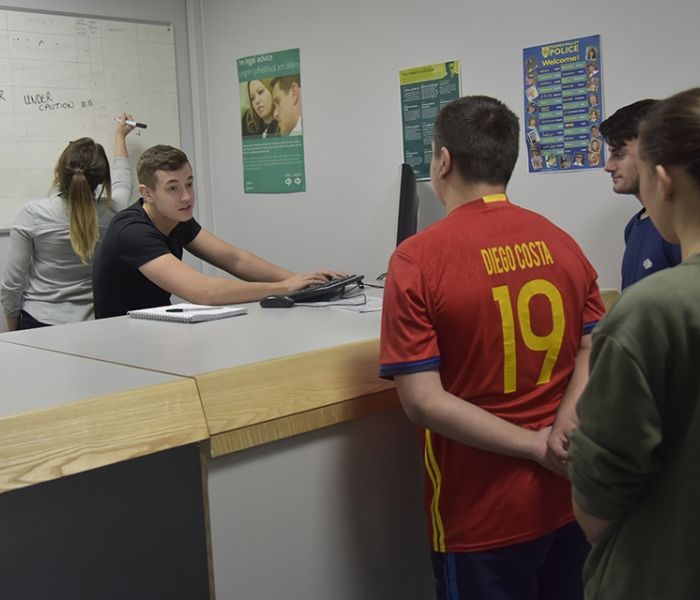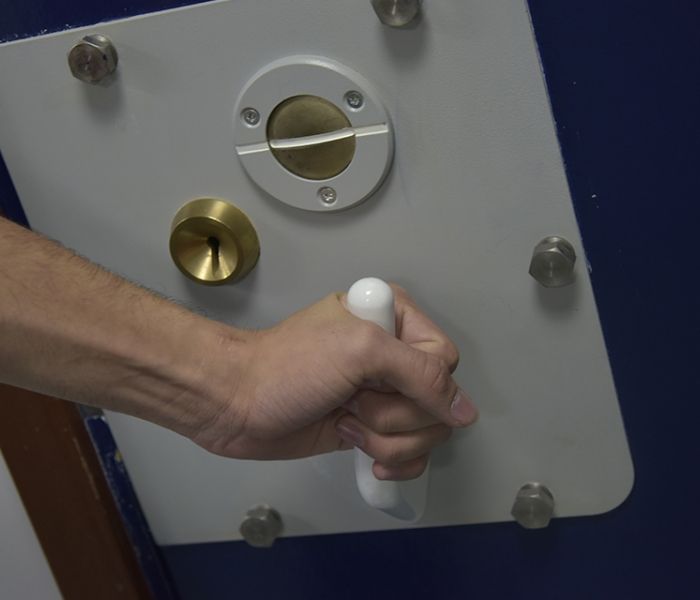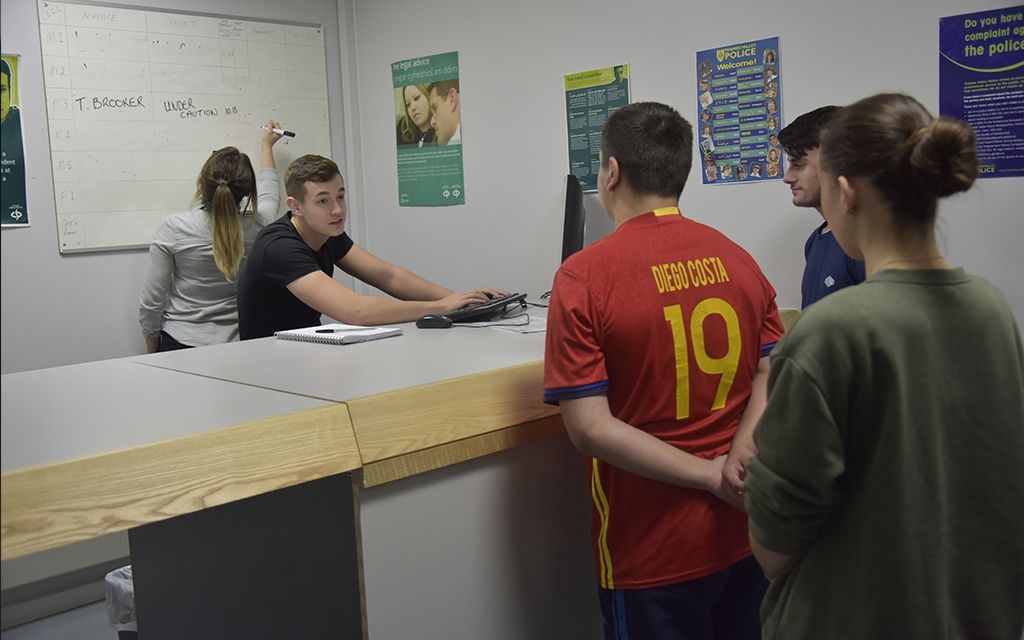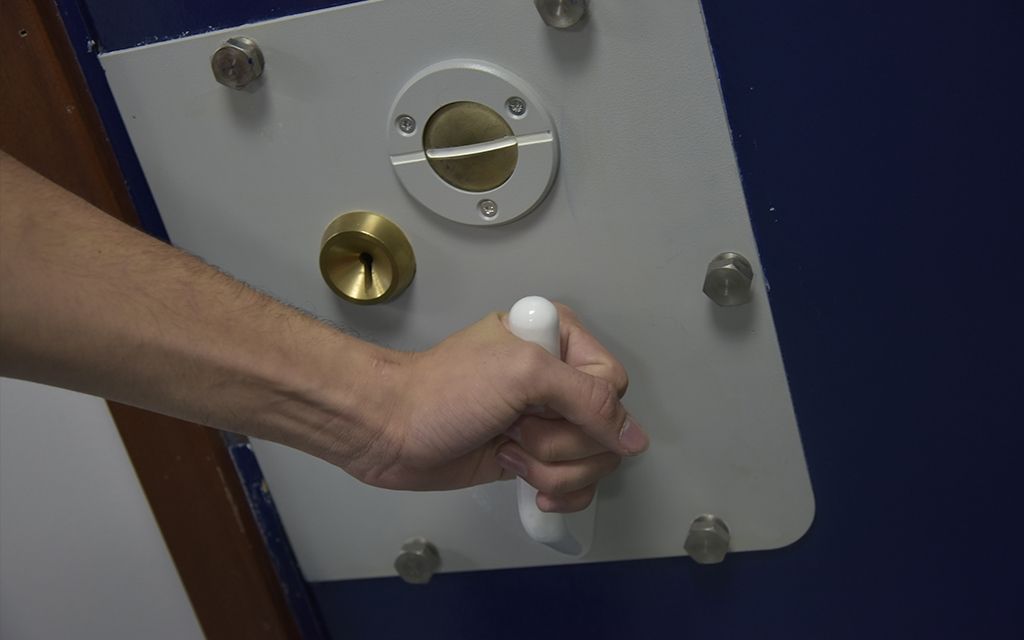
BSc (Hons) Professional Policing
- Study Mode: Full Time
- Location: High Wycombe
- Duration: Three or Four Years
- Start Date: September 2024
The police constable is the heartbeat of effective policing and this degree will give you all the knowledge required to start a career in this role.
This College of Policing accredited course offers a policing standard, knowledge-based examination of policing challenges and criminal justice processes and will help you to be able to make an informed choice about your future career destination within policing.
Why study this subject?
Policing is undergoing significant transformation, with many professional challenges. The College of Policing has indicated the qualifications to be a police officer include having a recognised apprenticeship or a degree, and our Professional Policing degree meets the requirements for the latter of these choices. Upon graduating from this degree, you’ll be able to join any police force in England and Wales within 5 years to put into practice the knowledge that you have learnt throughout your time with us.
As well as being a great fit for those wanting to move into a police constable role, this course would also suit those who have an interest in other areas within the police force or wider law enforcement. If throughout your studies you realise being a police officer is not the right career for you, you’ll have the opportunity to swap to our Police Studies with Criminal Investigation degree which takes a broader study of policing and the wider criminal justice system.
This course is also offered as a four-year programme, including an initial Foundation Year. The Foundation Year will allow you to develop your academic study skills and build confidence in your abilities, identifying your own strengths and development needs for progression onto an undergraduate programme.
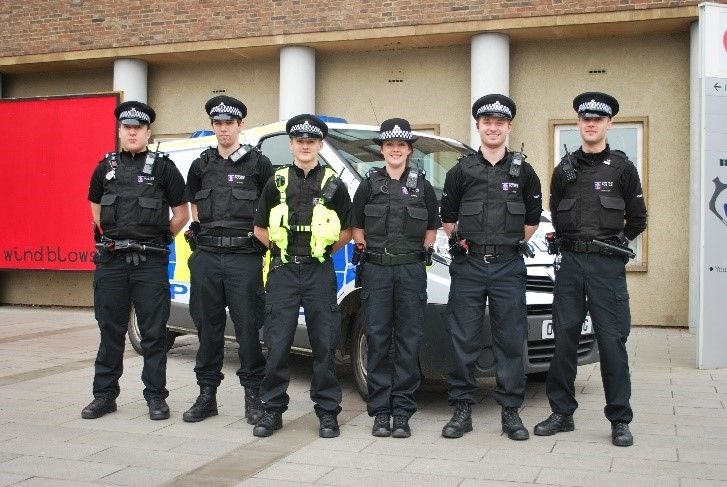
Why study at Buckinghamshire New University?
We’ve designed this pre-join course to help you become part of the exciting and demanding policing sector. You will learn from skilled lecturers within the School of Aviation and Security who have a high level of knowledge, based on past and current work in their specialist areas. In addition, throughout the course you’ll hear from experienced practitioners delivering guest talks that cover contemporary policing topics and what they’ve experienced in their careers.
You will be able to jump straight into the heart of policing matters with a programme that champions an ethical, values-based approach to policing through a high-quality, evidence-based educational course that encourages personal reflection and critical thinking whilst preparing learners for employability and continual professional development. The curriculum for this degree is rigorously mapped against the national learning standards defined by the College of Policing that have been identified as critical to 21st century policing.
Successfully completing this professional degree will open up the opportunity for you to progress to become a Police Constable. In this role you will contribute to the policing profession by being a highly capable problem-solver, communicator, negotiator and leader, as well as being increasingly socially and emotionally intelligent in the performance of your professional role.
Getting tangible work experience brings the theory to life and will enhance your employability in the sector. Although it is not a requirement for the course, you will be eligible to apply for a volunteer special constable position while studying for your degree. Selection to perform this voluntary special constable role is subject to a selection process and criteria owned by Thames Valley Police.
Other valuable volunteering opportunities in non-operational areas of policing or the wider criminal justice system and community initiatives are also available and encouraged.
As a BNU student, you will automatically become a member of Bucks Students’ Union giving you access to a wide range of services that we offer for free as part of our exclusive Big Deal package. Unlike many UK universities, we offer our members free access to a diverse and exciting range of activities, allowing you to experience new things, socialise with broader groups of people and boost your employability – all to enrich your university experience.
What facilities can I use?
You’ll get to hone your professional skills in our Police Code of Practice Suite. This regularly updated facility includes a mock bedsit, custody desk and suspect interview room, as well as adjoining seminar rooms with a live audio and video feed.
You’ll observe and understand theory by practising core policing processes such as arrest and interview of suspects, and searching premises, in a safe, controlled environment. Our library is the perfect place to find the resources you need and a quiet place to study, filled with four floors of books, journals, computer suites and study rooms. Or, if you’d rather work off campus, e-Journals and resources are only a few clicks away using our Virtual Learning Environment.
What will I study?
The curriculum for this degree has been rigorously mapped against the national learning standards defined by the College of Policing ensuring that our teaching is up-to-date and in line with the current policing landscape.
In year one, you will be introduced to the significant legal and ethical responsibilities of a police constable through a thorough introduction of core professional policing principles including criminal justice legislation, processes, standards and concepts. You will examine theoretical criminological concepts with a focus on practical application, alongside the growth of ‘plural policing’.
In year two, you will cover topics such as community policing, risk, professional standards and public protection which will guide you towards ever more ethical professional policing practice. You’ll develop your understanding of more complex and serious criminal investigations, as well as operational policing priorities.
In year three, you will explore complex and strategic policing issues, alongside operational policing challenges that front-line policing teams are typically responding to, and the conduct of ethical criminal investigations including the moral and legal considerations. You will also get to undertake a detailed, evidence-based research policing project which will demonstrate understanding of evidence-based and empirical research methods.
How will I be taught and assessed?
Modules are delivered through a blended learning approach comprised of:
- lectures
- seminars
- simulated role play type scenarios carried out in our Police Code of Practice Suite
- research-based activities
- classroom-based discussion
- individual tutorials
- workshops.
Formative assessment is a key feature of the programme, enabling early feedback to be given on progress and to help students improve their performance. Formative exercises may be conducted as a group or individually and may include poster presentations and simulated tasks within our Police Code of Practice Suite.
Academic achievement will normally be demonstrated through completion of pieces of coursework such as essays, reports, presentations, portfolios and projects, or by sitting formal examinations and time-constrained assessments.
The University also has a dedicated academic skills centre, Student Learning and Achievement, which can provide additional support in areas such as presentations skills, time-management, academic reading, referencing or academic writing, research for essay preparation and how to prepare effectively for examinations in addition to being assigned a personal tutor from the academic team.
What are the course entry requirements?
A typical offer will require a UCAS tariff score of: 88 - 112 (Full-time) or 32 - 56 (Foundation Year)
UCAS points can be obtained through qualifications such as A levels, T levels, BTEC or an Access to Higher Education course in a relevant subject. Please list all your qualifications on the application form as you will be asked to provide copies when we receive your application.
A minimum of two full A-levels (or equivalent) is required. Every application is considered on an individual basis.
For further details of our international English entry requirements, please visit our international pages.
If you do not meet the entry requirements you may, if you have relevant professional experience, still be invited for interview, where you will be required to demonstrate the necessary knowledge and understanding for entry onto the course.
Previous study, professional and / or vocational experiences may be recognised as the equivalent learning experience and permit exemption from studying certain modules in accordance with our accreditation of prior learning (APL) process.
Modules
This provides a guide of the modules that make up your course. You can find more information about how your course is structured on our Academic Advice section.
What are the tuition fees
Home
-
Home, Academic Year 2024 - 2025: £9,250
International
-
Overseas/International, Academic Year 2024 - 2025: £15,150
What are my career prospects?
Throughout your time with us we’ll support you on the route to your chosen career. We’ll help you to develop crucial skills, encouraging you to become enterprising and skilled leaders and support you in your search to find employment after graduation. Have a look at our Careers and Employability pages to find out more.
Following completion of this professional policing degree, most candidates will look to join a police force as a probationary police constable. To do this, you must:
- apply within five years of your graduation date
- meet all of the recruitment criteria for the particular force.
Once you have successfully joined a force as a probationer, you will need to:
- undertake further practice-based learning and assessment in your force
- demonstrate competence in the police constable role
- complete the two-year probationary period, in line with police regulations.
Other graduates may choose to pursue other policing roles or apply their transferable skills to other professions and workplaces. The opportunities are numerous and include (but are not limited to):
- private security
- risk management
- event organisation
- probation
- local government
- civil service
- Home Office.








